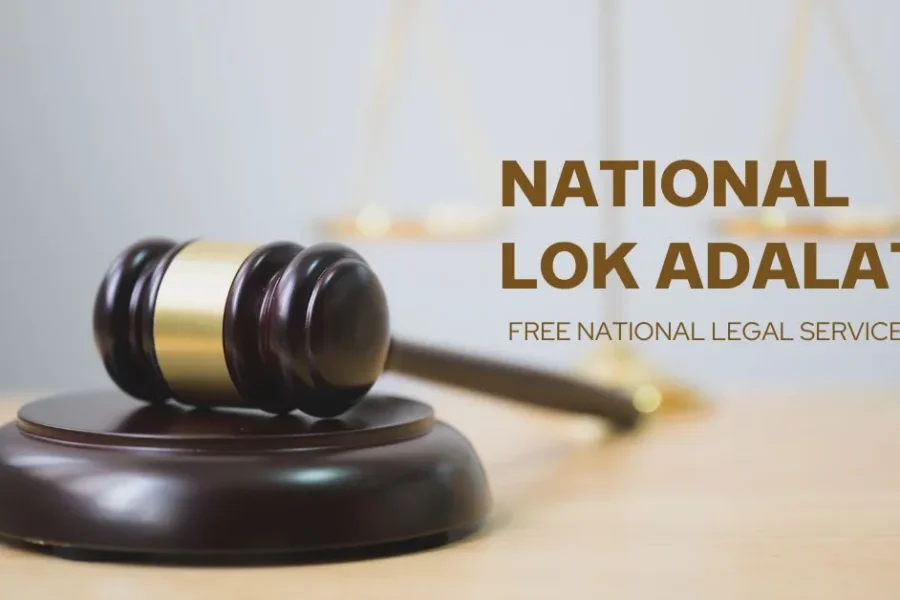Introduction
India’s judicial system, while robust, often grapples with delays and backlogs. To address this, the Lok Adalat system was introduced as an alternative dispute resolution mechanism, aiming to provide swift and cost-effective justice to the masses.
Meaning of Lok Adalat
“Lok Adalat” translates to “People’s Court.” It serves as a forum where disputes or cases pending in the court of law or at the pre-litigation stage are amicably settled. This system emphasizes mutual consent and compromise, ensuring that justice is not only done but is perceived to be done.
Background and Evolution
The concept of Lok Adalat is rooted in the traditional Indian practice of resolving disputes through community-based mechanisms. Recognizing its potential, the Legal Services Authorities Act of 1987 institutionalized Lok Adalats, granting them statutory status. Over the years, they have evolved to address a wide range of disputes, reflecting the dynamic needs of society.
Objectives
The primary objectives of Lok Adalats include:
- Providing Access to Justice: Ensuring that every individual, regardless of economic or social status, has access to legal remedies.
- Reducing Court Backlogs: Alleviating the burden on traditional courts by resolving disputes amicably.
- Promoting Legal Awareness: Educating the public about their rights and the legal avenues available to them.
Key Features
- Voluntary Participation: Both parties must agree to settle the dispute through Lok Adalat.
- No Court Fees: Litigants are not required to pay any court fees, and if a case pending in court is settled in Lok Adalat, the fee paid is refunded.
- Binding Decisions: The award passed by a Lok Adalat is deemed to be a decree of a civil court and is final and binding on all parties.
- Informal Proceedings: The procedural laws and the Evidence Act are not strictly followed, making the process more flexible.
Types of Lok Adalats
- Permanent Lok Adalat (PLA): Established under Section 22B of the Legal Services Authorities Act, PLAs deal with disputes related to public utility services like transport, postal services, and telecommunication.
- National Lok Adalat: Held at regular intervals across the country on specific topics, these adalat aim to dispose of a large number of pending cases in a single day.
- Mega Lok Adalat: Organized across all courts in a state on a single day, focusing on mass disposal of cases.
- Mobile Lok Adalats: These travel from one location to another, especially in rural areas, to resolve disputes on the spot.
Procedure of Lok Adalat
- Case Identification: Cases suitable for settlement are identified, either pending in courts or at the pre-litigation stage.
- Consent of Parties: Both parties must agree to refer the case to Lok Adalat.
- Constitution of Bench: A bench comprising a judicial officer and other members is constituted to preside over the proceedings.
- Hearing and Settlement: The bench facilitates dialogue between parties, aiming for a mutually acceptable settlement.
- Award: Once a settlement is reached, an award is passed, which is binding and enforceable.
Powers and Authority
Lok Adalats possess the powers of a civil court under the Code of Civil Procedure. They can summon witnesses, examine evidence, and requisition public records. However, they cannot compel a settlement; their role is to facilitate mutual agreement.
Types of Cases Handled
- Civil Cases: Including matrimonial disputes, property disputes, and partition suits.
- Compoundable Criminal Offenses: Such as cases under Section 138 of the Negotiable Instruments Act (cheque bounce cases).
- Motor Accident Claims: Disputes related to compensation from motor accidents.
- Labour Disputes: Issues between employers and employees.
- Public Utility Bills: Disputes related to electricity, water, and telephone bills.
Cases Not Handled
Lok Adalats do not entertain:
- Non-Compoundable Criminal Offenses: Serious crimes that cannot be settled outside the court.
- Cases Without Mutual Consent: If either party does not agree to settle, the case cannot proceed in Lok Adalat.
Benefits
- Speedy Resolution: Cases are settled promptly, often in a single day.
- Cost-Effective: No court fees and minimal expenses involved.
- Reduced Burden on Courts: Helps in decreasing the backlog of cases in traditional courts.
- Accessible Justice: Especially beneficial for the underprivileged and those in remote areas.
Limitations
- Dependence on Mutual Consent: Without the agreement of both parties, cases cannot be settled.
- Limited Jurisdiction: Cannot handle non-compoundable criminal offenses.
- No Appeal: The award is final; dissatisfied parties cannot appeal.
Conclusion
Lok Adalats have emerged as a vital component of India’s justice delivery system, ensuring that justice is not a privilege but a right accessible to all. By promoting amicable settlements, they not only expedite the resolution process but also foster a culture of harmony and understanding. As India continues to evolve, strengthening and expanding the reach of Lok Adalats will be instrumental in realizing the constitutional promise of justice for all.
CONTRIBUTED BY – ANSHU (INTERN)

